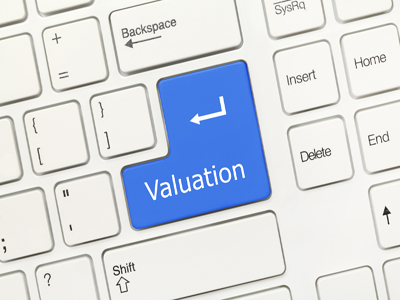How do you determine the value of your business when you go to sell or even buy a business? There are so many factors and that is usually one of the first items serious buyers inquire about. When a business broker or agent goes to sell a business this should be one of the first tasks they perform.

Comments & Feedback From Pro Intermediaries & Pro Advisors On BizBen:
 Often, I'm asked, "Aren't all businesses worth the same multiple of profit or percentage of sales? Profit is profit, and a dollar is a dollar, right?"
Often, I'm asked, "Aren't all businesses worth the same multiple of profit or percentage of sales? Profit is profit, and a dollar is a dollar, right?"  Thank you for the great article. You are absolutely correct. In the end it comes down to What a Buyer is willing to Pay and a Seller is willing to accept. So, coming up with the comparable value is a basis. Most would pay more for the life on the beach, but both options need to be tested. The problem is of course beyond substantiating the numbers, which I see dominate most Buyers decisions. Unfortunately, this often leads to a rush of judgment. A business purchase, especially one with equipment or Lease dependent requires a great deal of Due Diligence in various areas, beyond the numbers. I also agree that unless a business is performing at Model Levels it should be looked at from all directions including, unit in place, sustainability testing, Lease conditions and competitive position and potential are all tests that should be conducted if one is diligent. Business Acquisitions absolutely fit the Message "Buyer Beware".
Thank you for the great article. You are absolutely correct. In the end it comes down to What a Buyer is willing to Pay and a Seller is willing to accept. So, coming up with the comparable value is a basis. Most would pay more for the life on the beach, but both options need to be tested. The problem is of course beyond substantiating the numbers, which I see dominate most Buyers decisions. Unfortunately, this often leads to a rush of judgment. A business purchase, especially one with equipment or Lease dependent requires a great deal of Due Diligence in various areas, beyond the numbers. I also agree that unless a business is performing at Model Levels it should be looked at from all directions including, unit in place, sustainability testing, Lease conditions and competitive position and potential are all tests that should be conducted if one is diligent. Business Acquisitions absolutely fit the Message "Buyer Beware".
 There are many factors that can affect a sales price, such as high rent, location, level of expertise that a new owner may need to properly run the business, etc. Working with enough buyers, I have found that most expect to receive a ROI with 2-3 years, and then want to make sure that they have enough time on the lease, so that they will be able to sell in the future.
There are many factors that can affect a sales price, such as high rent, location, level of expertise that a new owner may need to properly run the business, etc. Working with enough buyers, I have found that most expect to receive a ROI with 2-3 years, and then want to make sure that they have enough time on the lease, so that they will be able to sell in the future.

 Ultimately the "value" of a business depends on the benefit to be derived by the unique purchaser ... and that can vary from buyer to buyer. In broad terms, there are three kinds of buyers: the "career seeker", the "absentee (or semi-absentee) investor," and the "strategic player" (already in the business and seeking a marketing or operational advantage by acquisition). For each of these buyers, the "value" of the business may be significantly different.
Ultimately the "value" of a business depends on the benefit to be derived by the unique purchaser ... and that can vary from buyer to buyer. In broad terms, there are three kinds of buyers: the "career seeker", the "absentee (or semi-absentee) investor," and the "strategic player" (already in the business and seeking a marketing or operational advantage by acquisition). For each of these buyers, the "value" of the business may be significantly different. 
